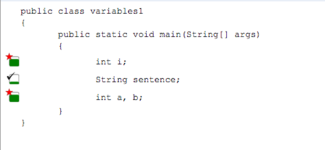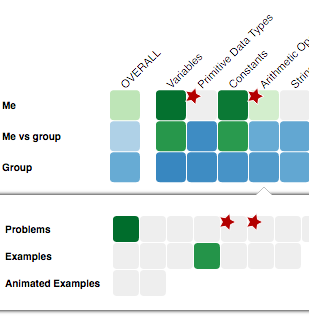LearningRecommendation
In this section we explain some of the recommender approaches that has been developed and used in Mastery Grids.
ProActive Recommendations
These recommender systems require no trigger. They are represented in Mastery Grids interface as stars on the topic and learning resources. The size of star shows the importance (weight) of recommended material. Two recommender systems has been implemented in this setting: Adaptive Sequencing, and Probabilistic Outspread approaches. Adaptive sequencing is a greedy sequencing approach aimed at maximizing each student’s level of knowledge and activities. The learning material are ranked by balancing the knowledge level of each student in the prerequisite concepts of the learning material with the knowledge that can be gained from the outcome concepts. The probabilistic outspread approach aims to select the learning material that increases the probability of the student solving all of the quizzes in the course. It uses FAST as its underlying probabilistic model of student's knowledge and performance.
ReActive Recommendations
These recommendations occur only when student fails in solving a question correctly in Mastery Grids. The student is going to be suggested some examples that can help the student acquire the skills needed to solve the original question.
The following images show example line recommendation and learning resource recommendation in Mastery Grids.
Example line recommendation:
Learning Resource Recommendation:


